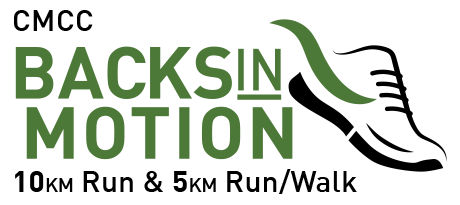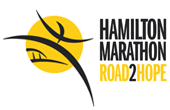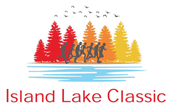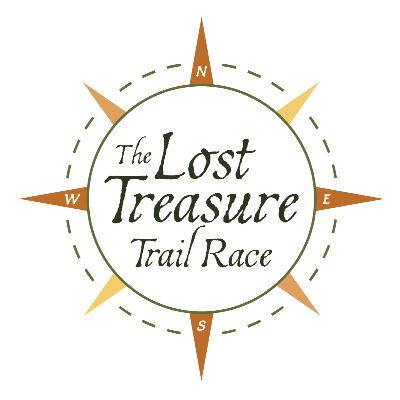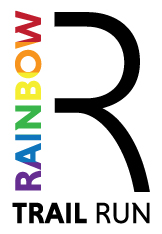Having grown up just outside of Huntsville I always tend to think of the Muskoka races as my hometown races and have enjoyed racing the sprint, long course and 70.3 races in previous years. Last year I couldn’t work the 5150 into my build for Ironman Mont Tremblant, but fortunately this year my work schedule looked promising so we packed up the family and headed up to Huntsville. Saturday I got up and did a quick swim in the river to scout the currents, which fortunately seemed minimal, hopped on the bike for the first 10k or so of the bike course, and ran a bit of the run course before heading inside to register. The turnout was pretty small this year with Welland, Tremblant 70.3 and Syracuse 70.3 all falling on the same weekend, but I picked out a few fast guys on the list and knew there would still be some decent competition. I was looking forward to a good test of my fitness one month out from the Toronto triathlon festival which would give me a couple weeks to work on any weaknesses that I identified in Muskoka. Having raced both Woodstock and Binbrook I was pretty confident I was stronger than years past, but both of those races were done during periods of heavier training and I felt I was missing an extra gear that I was hoping would return after a bit of a taper.
As always race morning came early and I had a quick breakfast, a cup of coffee and jumped on my bike and rode the 3k to the race site. Every race I am determined to leave enough time for a swim warm-up, and every race I end up chatting with just about everyone around me and end up frantically trying to shoe-horn myself into my wetsuit with a couple of minutes to go. I quickly got my stuff arranged, made sure to leave my bike in the small ring for the short climb out of T1, got in a quick run and grabbed my wetsuit for the 500m walk to the swim start.
For the first time ever I was in the water a good 15 minutes before my start and did about 5 minutes of easy swimming and then another 5 including some race pace work. I was in the 3rd wave, which I wasn’t terribly thrilled about as all the races I’ve done in the past two seasons have either been mass start, or I’ve gone first wave in the elite age group category and I really enjoy not having the additional traffic to contend with. Fortunately due to the low turnout I was pretty sure there wouldn’t be much traffic of any sort in the way. The pro wave went off first, and I know its not a high profile event, but there were a decent number of US pros in attendance (including Alicia Kaye, winner of St. Anthony’s this year – a very high profile event!) and I thought it would have been a nice touch to play the national anthem prior to the start of the race.
When it came time for my wave to line up I quickly claimed my spot on the far left which offered the shortest line to the first turn, and also put me right against an inflatable barrier that would prevent anyone from coming up on my left side. I figured if the swim start was rough I’d always have plenty of open water to my left to get clear. I desperately wanted to avoid a similar experience to Binbrook two weeks earlier where most of us in the first wave were unable to hear the announcer and were caught completely off guard by the horn! What ensued was the most chaotic start I had ever experienced and made last years ironman mass start of 2500 people seem calm by comparison. At Binbrook I had to sprint flat out almost until the first turn just to get away from the crazy physical contact knowing the whole time I was writing cheques that would be cashed in the final few hundred meters of the swim as I went deeper and deeper into oxygen debt. My plan for Muskoka was to set my race tempo right out of the gate. Long smooth strokes with no anerobic redline sprinting and then pick the tempo up a little once I entered the river to minimize the effects of the current. The horn went off and I was able to stick to my plan, just laying down a solid tempo and after about 100 meters I was shocked to see that I had gone right off the front of the pack and was completely on my own. This was a very new experience for me, and of course the bad news was I had no opportunity to catch a draft, but the good news was no one had jumped onto my toes either to hitch a ride. I was easily able to pick my way through swimmers from previous waves and before I knew it I was heading into the river for the home stretch. I increased my turnover and swam the lines I had picked out the previous day where I knew the current would be weaker. I hit the steps and checked my watch to see a time of just over 22 minutes for the 1500m. A huge improvement over my previous olympic distance swim splits, and can be attributed to months of swimming with the Mississauga Triathlon Club trying desperately to keep on the toes of swim coach (and 52 minute Ironman swimmer!) Randy Gordon.
Swim split 23:13 (included 200m run-up to T1), 1st place AG, 13th OA
By this point I had opened up a three minute gap over the 2nd place guy in the M35-39 age group, but I didn’t know that so I quickly got out of my wetsuit, threw on my helmet and for once managed a decent flying mount as I spun up the hill out of transition. I got my feet in my shoes and after the first few hills tried to settle into a decent rhythm and get my effort up to my target of around 260 watts for the 40k. There were only a handful of riders out on the road ahead of me and I tried to keep my effort steady up and over the numerous hills as I picked them off one at a time. The course isn’t a killer, as most of the hills are short lived, but there are a lot of them, and virtually no flat section anywhere on the 40k out and back course. My average power was showing about 10 watts under what I hoped to hit, and at the time I was starting to wonder why my legs weren’t responding when I felt so good. Looking back at it now I think there were just too many downhills to coast down and the frequent “0” power was dragging down my power average. At about 15km in I saw the pros coming back the other way with eventual winner Jon Bird from Calgary way out in front of a small group of chasers about 500m behind. There only about 20 or so age groupers from the previous waves in front of me as I approached the turnaround so I knew I was sitting fairly well on the overall standings. As I hit the turnaround I noticed someone closing in on me so I tried to put a little more pressure on the pedals to try and stay out in front, but he still caught me at around the 25 km mark. From then on we played leapfrog for most of the remainder of the ride as I tended to climb a little faster, but he would catch me on each descent. With 5km to go we had caught another rider who then surged past us a few minutes later. With a little over 3km there is a false flat, followed by about 1km of rollers and I decided to put on a bit of a surge and was able to pass both of them permanently.
Bike split 1:04:40, a little slower than I had hoped for, but still 1st AG, and good enough for 6th fastest split on the day. Guess its a slow course!
The run was still a bit of a question mark for me. I had battled an achilles injury for almost the first 5 months of the year, and consequently my running fitness is not where it usually would be at this point in the season. Surprisingly, the cardiovascular crossover from biking seems to have minimized the damage and in the first two races of the year I estimate only losing about 5-10 seconds per kilometer. I knew the run course was challenging, with the only flat parts being partial laps of two running tracks, so I hoped to be able to go close to 40 minutes even. As I came out of T2 I could see Running Free athlete Jon Dow from Barrie just up the road and attempted to close the gap. I soon realized this was not going to happen as Jon’s blistering pace left me in the dust as he went on to clock under 39 minutes – faster than several pros. I felt pretty good through the opening two kilometers, helped along by running over the “Go Daddy Go” messages my girls had chalked onto the course. The sharp incline up to the ‘old track’ followed by fairly steep descent to the swim start area started to take its toll, and was a reminder that my leg speed is still not quite back as I wasn’t able to fully get off the brakes and let fly on the downhill. The temperature was really rising rapidly and I could really feel the heat when the run course returned to the blacktop for the last 1500m of the first lap. My water bottle on the bike had been a little too concentrated for the effort of the day and had not sat well, consequently I was now about an hour and 45 minutes into the race having only taken in about 8 oz of fluid including a few sips from run course water stations. I ran past transition to start lap 2 and took a quick glance at the clock and it was at 1:57, which was 1:49 race time for those of us starting in the 3rd wave. I knew the heat and early effects of dehydration would make my second loop a little slower than my first, but I was pretty sure I could run close enough to 20 minutes for the last 5k to come in under 2:10. I felt like I was shuffling for most of the second lap, grabbing a little water from aid stations when I could, most of which I just poured on my head. My km splits, while not particularly impressive, remained good enough to keep me close to a 40 minute run split. My quads were starting to twinge a little, an initial warning that full blown cramping was not too far off, but I felt pretty confident I could keep them at bay for the remaining distance. The last section of course features a few hills which are not particularly difficult, but each one felt like a mountain pass as the final few km ticked by at what felt like a glacial pace. Fortunately the last 500m is mostly downhill as the only finishing kick I could muster was the one provided by gravity, and I cruised over the finish in 2:09:24 – a 1:40 improvement over my previous PB at the olympic distance on a far more challenging course.
Run split 40:14, not bad given the circumstances, good enough for 14th overall, but leaving me with the feeling that there is still some serious work to be done!
When the results were posted I found out that I had taken my age group by close to six and a half minutes and finished in 10th overall (the same overall placing I’ve had in both the other triathlons I’ve done this season!), having been beaten by only two other amateur racers. Top five in each age group receive a free entry to Hy-vee in Des Moines, and while I highly doubt I’ll be travelling to Des Moines this labour day weekend a free entry is a free entry so I did register. Rumor has it that 2013 was the last year for this race as the dwindling registration numbers are not sufficient to come up with the licensing fee required to brand it 5150, so it will be interesting to see what the future holds for this race. I really hope that TriMuskoka and Trisport Canada can come up with a solution that is reflective of the glory days of theMuskoka Chase that saw the likes of Simon Whitfield, Jasper Blake, Craig Alexander, Magali Tisseyre, Luc van Lierde and others coming back year after year.





